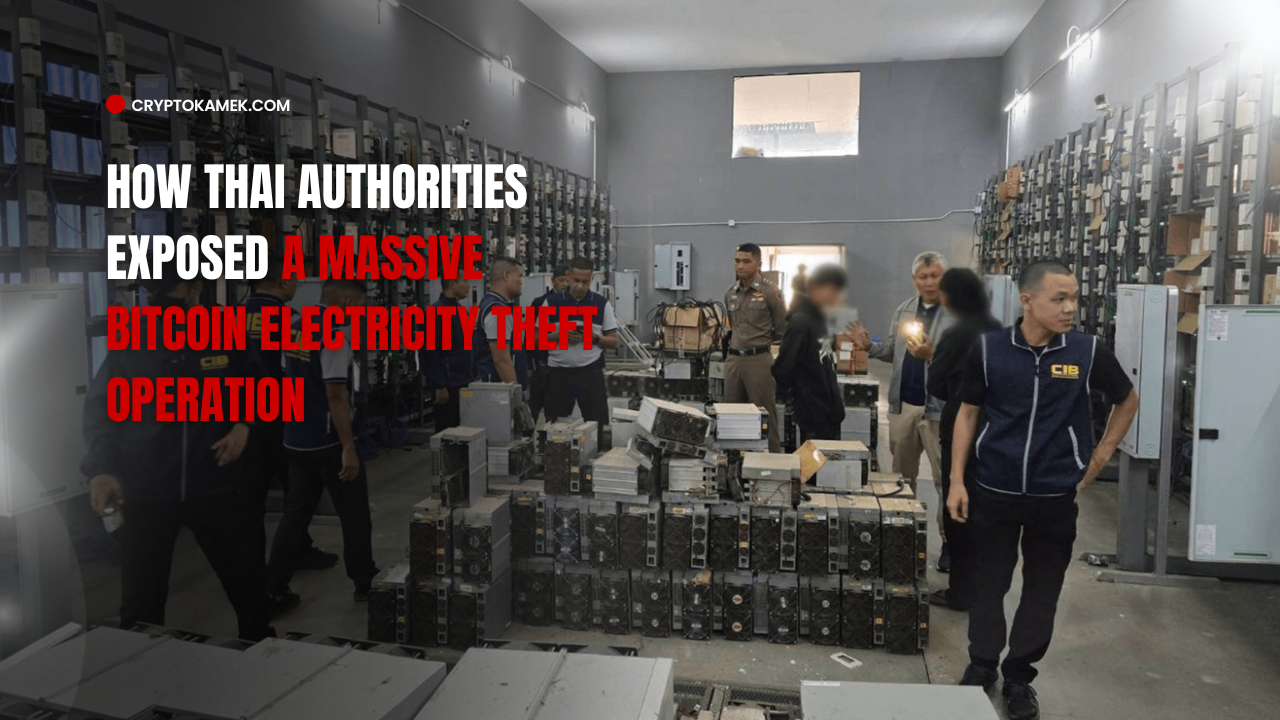

Cambodia Blocks Binance and Coinbase Amid Crypto Ban
The cryptocurrency world has seen its fair share of regulations, crackdowns, and adaptations. On December 3, 2024, Cambodia made headlines for blocking 16 major cryptocurrency exchange websites, including giants like Binance and Coinbase. This bold move signals the Cambodian government’s commitment to regulating its cryptocurrency market and controlling the rise of cybercrime. However, this ban isn’t as clear-cut as it seems. Let’s unpack the story behind this decision and its implications for the future of digital assets in Cambodia.
Overview of Cambodia’s Crypto Ban
Cambodia’s latest decision to block 16 cryptocurrency exchange websites, including Binance and Coinbase, is part of a broader attempt by the government to take control over its increasingly popular cryptocurrency sector. This move is being driven by concerns over cybercrime, a desire for more regulation, and a need for better oversight of digital assets in the country. While the block has affected website access, mobile applications for these exchanges are still operational, meaning users can access their crypto accounts and continue trading with some restrictions.
Why Did Cambodia Take This Step?
The decision to block these platforms was initiated by the Telecommunication Regulator of Cambodia (TRC). According to the TRC, these cryptocurrency exchanges were operating without the necessary licenses from the Securities and Exchange Regulator of Cambodia (SERC), which regulates financial markets in the country. Without these licenses, the government argues, the exchanges are operating in an illegal capacity, leaving users vulnerable to potential risks, including cybercrime and fraud.
The Cambodian government has faced mounting pressure to regulate its fast-growing crypto market, with the need to protect citizens and maintain financial stability being central to the push for change. But how did we get to this point, and what does it mean for the future of crypto in Cambodia?
Context of Cryptocurrency in Cambodia
While Cambodia may not have been a household name in the cryptocurrency world a few years ago, it has quickly risen to prominence. The country is now ranked among the top 20 nations for retail cryptocurrency usage. Despite the relatively small size of the nation’s economy, cryptocurrencies have captured the attention of its citizens, especially with the rise of centralized exchanges like Binance and Coinbase.
Cryptocurrency transactions in Cambodia have grown significantly, with centralized exchanges accounting for approximately 70% of all crypto transactions in the country. This rapid adoption has been driven by several factors, including access to international digital assets, the appeal of cryptocurrency as an alternative to traditional banking, and a general eagerness to embrace new technology. But it’s not all smooth sailing; as the crypto market grows, so do the risks.
The Challenge of Regulating Cryptocurrency
As Cambodia’s crypto market grows, so does its vulnerability to cybercrime. The government has become increasingly aware of the dark side of cryptocurrencies, with many criminals leveraging digital assets for illicit activities. According to the UN Office on Drugs and Crime, criminal organizations are using cryptocurrencies for money laundering, fraud, and even dark-web transactions. This has created a pressing need for regulation and oversight.
The Cambodian government has faced significant pressure to address these issues. While the country has shown a commitment to tackling cybercrime, the cryptocurrency market remains somewhat unregulated, which has raised concerns among officials about its potential to fuel illegal activities. This context of rising cybercrime is a key factor driving the government’s decision to block major exchanges.
Regulatory Framework and Challenges
The Current Licensing Situation
To regulate the use of digital assets more effectively, Cambodia has established a “FinTech Regulatory Sandbox” program under the oversight of the Securities and Exchange Regulator of Cambodia (SERC). This program allows companies to obtain licenses to trade digital assets under a controlled, experimental framework. However, the program is still in its early stages, and only two companies have managed to secure licenses to operate under its guidelines.
These licensed entities are allowed to trade digital assets but face restrictions. Notably, they are prohibited from exchanging digital assets for traditional fiat currencies like the Cambodian riel or US dollars. This limited licensing approach reflects the government’s cautious stance toward integrating cryptocurrencies into the formal economy, as authorities aim to mitigate risks associated with unregulated trading.
Previous Collaborations with Crypto Firms
Interestingly, despite the crackdown, Binance has had prior dealings with Cambodian regulators. In 2022, Binance entered into a memorandum of understanding (MOU) with the Securities and Exchange Regulator of Cambodia (SERC) to help develop regulations for digital currencies. Binance also provided training to local officials earlier in 2024 to improve their ability to detect crypto-related crimes. These efforts suggested a willingness from both sides to cooperate and create a better regulatory framework for digital assets. However, these collaborations have not translated into lasting operational freedom for platforms like Binance and Coinbase.
The gap between initial cooperation and the eventual ban reflects the tension between the growing demand for cryptocurrencies in Cambodia and the government’s desire to protect citizens and control the market.
Implications of the Ban
The ban on major cryptocurrency exchanges like Binance and Coinbase will have far-reaching consequences for Cambodia’s digital asset market. Let’s explore the implications of this decision for different stakeholders.
Impact on Users
The most direct impact will be felt by Cambodian cryptocurrency users. While the ban blocks access to exchange websites, users are still able to trade via mobile applications. This partial ban means that the government is not completely shutting down cryptocurrency access, but it is restricting users’ ability to access these platforms through conventional means like desktop browsers.
This approach could lead to some interesting workarounds, with users possibly finding alternative ways to trade or switching to other exchanges that may not be regulated in Cambodia. As a result, the effectiveness of the ban may be limited, as users adapt to the new restrictions.
Market Dynamics and Challenges
The ban could also change the dynamics of the cryptocurrency market in Cambodia. With major players like Binance and Coinbase temporarily out of the picture, users might turn to less regulated platforms, which may not adhere to the same standards as the blocked exchanges. This could create more opportunities for unregulated trading and increase the risks associated with fraud and scams.
Cybercrime Concerns
One of the driving factors behind the ban is Cambodia’s growing concern over cybercrime. The country has become notorious as a hub for cyber scams, with criminal organizations using cryptocurrencies to fund illicit activities. This crackdown on exchanges is part of the government’s efforts to curtail these activities, but experts are skeptical about whether this approach will be enough to eliminate the problem.
The UN Office on Drugs and Crime has repeatedly warned about the link between cryptocurrencies and illegal activities, including money laundering, fraud, and dark-web transactions. These concerns have prompted Cambodia to strengthen its regulatory framework and try to shut down platforms that are not licensed or properly regulated.
Expert Opinions
Experts in the field have raised concerns about the effectiveness of such bans, especially when there is significant demand for cryptocurrencies. According to Chengyi Ong, head of Asia-Pacific policy at Chainalysis, broad-based restrictions often fail when real-world applications of cryptocurrencies are still in demand. This sentiment reflects the challenge governments face in balancing regulation with market realities.
Regulatory measures need to be adaptable to the fast-moving world of cryptocurrency, where global exchanges and decentralized platforms operate beyond national borders. For Cambodia, finding a balance between securing the digital space and fostering innovation will be a difficult, ongoing challenge.
Conclusion
Cambodia’s recent decision to block Binance, Coinbase, and other cryptocurrency exchanges represents a significant moment in the country’s ongoing effort to regulate the digital asset market. While the move aims to address issues related to cybercrime, fraud, and unregulated trading, it has sparked debates about the effectiveness of such measures.
As Cambodia continues to grapple with the rapid growth of cryptocurrency usage, it will need to evolve its regulatory framework to strike a balance between encouraging innovation and protecting its citizens. The future of cryptocurrency in Cambodia will likely be shaped by a combination of government regulations, market demand, and global cooperation with crypto platforms.
The road ahead for Cambodia’s digital asset market remains uncertain, but one thing is clear: as cryptocurrencies continue to play a larger role in global finance, Cambodia must navigate the challenges of regulation, security, and market growth to create a safer, more structured environment for digital asset trading.
Source:
- Binance, Coinbase access restricted in Cambodia amid tightening crypto regulations
- Cambodia Blocks Binance, Coinbase Amid Crypto Regulation Push
- Coinbase, Binance Among 16 Crypto Exchange Websites Blocked by Cambodia






